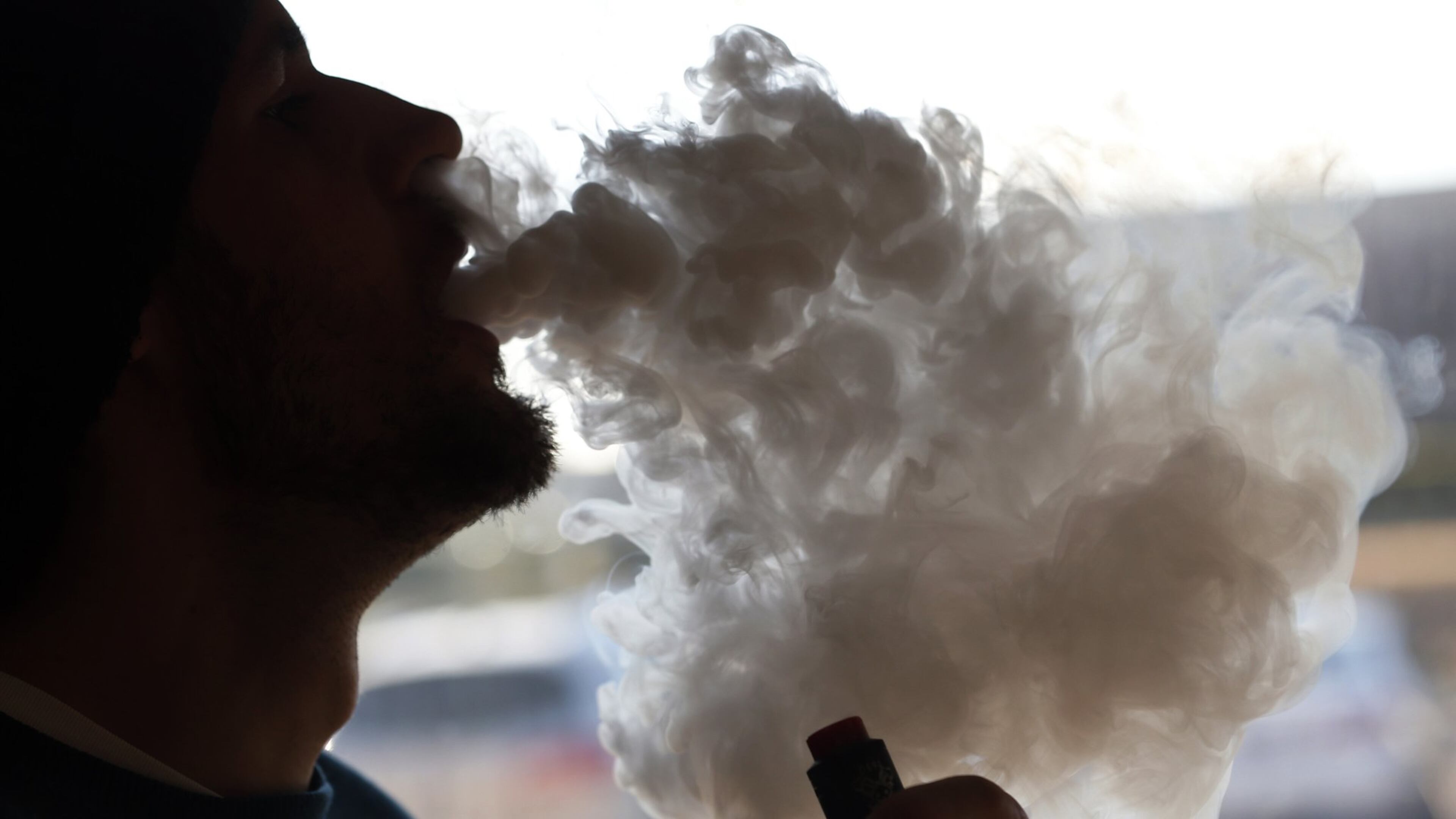White House bans most flavored e-cigarettes, but exempts others

The Trump administration on Thursday announced regulations that would prohibit sales of some flavored e-cigarettes popular among teens, but allow exemptions for others.
U.S. Food and Drug Administration officials said the ban includes fruit, candy, mint and similar flavors from small, cartridge-based e-cigarettes favored by young people.
Menthol and tobacco-flavored e-cigarettes, along with large, tank-based vaping devices which are mostly sold in vape shops that cater to adult smokers, will remain on the market.
The new policy is the federal government’s biggest step so far at targeting teen vaping, but several public health organizations criticized the exemptions.
The popularity of e-cigarettes and vaping has drawn concerns from some physicians because of the nicotine content, and underage teens using them. State health officials have reported four vaping-associated deaths as of last month.
“As we work to combat the troubling epidemic of youth e-cigarette use, the enforcement policy we’re issuing today confirms our commitment to dramatically limit children’s access to certain flavored e-cigarette products we know are so appealing to them — so-called cartridge-based products that are both easy to use and easily concealable,” FDA Commissioner Stephen M. Hahn said in a statement.
A Georgia lawmaker pushing for additional regulations believes Thursday's announcement is a positive development that will convince the state to pass a bill written last year that includes raising the sales age for e-cigarettes from 18 to 21.
“I think it makes it easier for Georgia to pass its own legislation,” state Rep. Sharon Cooper, a Marietta Republican who is a nurse and chairs the state House of Representatives Health and Human Services committee, said in a telephone interview.
Slightly more than one-quarter of American high school students and one in 10 middle school students used e-cigarettes within the past 30 days, according to research by the Atlanta-based U.S. Centers for Disease Control and Prevention. The number of young people using e-cigarettes rose by about 50% in 2019, to about 5.3 million American youths, some research shows.
Gov. Brian Kemp in October issued a public awareness campaign on the risks of vaping and e-cigarettes. A December 2019 report by several public health organizations found Georgia ranked 49th nationally in state spending on tobacco prevention.
Some federal lawmakers and public health groups said Thursday that the federal government’s plan does not go far enough because the ban doesn’t include menthol and tobacco devices. Health and Human Services Secretary Alex Azar said the administration decided to exempt menthol after reviewing new data showing the flavor was not popular with teens.
Critics said the White House plan will not reduce e-cigarette use, calling the situation a public health crisis.
“Today’s announcement from the Administration falls far short of President Trump’s public promise to restrict the flavors being used by Big Tobacco to get a new generation of young people addicted to their products. A so-called flavor ban that exempts menthol and vape shops is no ban at all,” said U.S. Rep. Frank Pallone, a New Jersey Democrat who sponsored a bill last year to ban all flavored products.
Trump’s original plan announced four months ago would have banned all vaping flavors — including menthol — from all types of e-cigarettes.
“We have to protect our families,” Trump said this week ahead of the announcement. “At the same time, it’s a big industry. We want to protect the industry.”
Kristen Holtz, who leads an Atlanta-based organization working to stop e-cigarette use, said some research shows users will use any product, regardless of flavor. Holtz, principal investigator of AVOIDVapes.com, said more education is needed in Georgia’s schools about the dangers of these products.
Some local governments have passed their own policies to combat vaping.
Alpharetta city leaders in October passed a law that prohibits shops with more than 10% of its sales coming from cigars, cigarettes, vape or tobacco products from a school, religious institution, government building or park. Atlanta lawmakers passed legislation that took effect Thursday that bans smoking and vaping inside the city's airport, restaurants, bars, workplaces and many other public locations.
Reporting by the Associated Press was used in this story.
Here’s a breakdown of the federal government’s new rules on e-cigarettes
What’s banned: fruit, candy, mint and similar flavors from small, cartridge-based e-cigarettes
What’s not banned: menthol and tobacco-flavored e-cigarettes as well as large, tank-based vaping devices.
More Stories
The Latest


